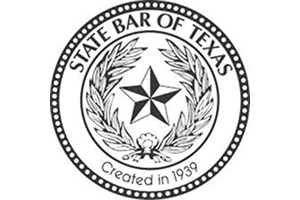Probate Attorney
Probate
Probate Attorney
If you are an interested person of an estate and you have questions about probate, securing clear title to assets, and/or gaining access to bank accounts, retirement or life insurance proceeds, etc., schedule a consultation with our office to see what options are available to you.
What is Probate?
Generally, the court will appoint an individual to manage the estate of the person that has passed away. The individual appointed by the court, commonly known as the personal representative, will be tasked with wrapping up the final affairs of the deceased person. On behalf of the estate, the personal representative will address the deceased’s outstanding debts and taxes, give notice to the public and others, and then the personal representative will distribute any remaining assets to the legal heirs.
Intestate Succession
When an individual dies without a Will (intestate) or a valid estate plan, the Decedent’s assets will be distributed to the Decedent’s legal heirs according to Texas’s intestate succession laws. The intestate succession laws will determine the order of inheritance for heirs and the portions of the estate each heir will receive.
It is important to note that under intestate succession a person’s wishes on how their assets will be distributed may not always align with state law.
Determination of Heirs
In Texas, a determination of heirship is a legal process that identifies the heirs of the person who passed away without a Will (intestate) or valid estate plan.
Independent Administration of Estate
In Texas, independent administration allows the personal representative to manage and settle an estate with minimal court supervision. If a Will exists, generally, the personal representative will be called the Executor; if no Will exists, generally, the personal representative will be called the Administrator. The Executor or Administrator will share the same responsibilities which includes handling tasks, such as addressing outstanding debts on behalf of the estate, ensuring taxes are filed on behalf of the Decedent and estate, and distributing the remaining assets to the beneficiaries and/or heirs.
Dependent Administration of Estate
In Texas, dependent administration allows an estate’s Executor or Administrator to manage the Decedent’s estate with court oversight. This process will typically require more court appearances and court approval for actions taken by the Executor or Administrator (i.e., personal representative).
Letters Testamentary
Letters Testamentary is an order issued by the probate court after a Will has been validated and accepted by the Court. This order will allow the Executor to legally act on behalf of the estate and begin handling affairs on behalf of the estate. Similarly, when a person passes away without a Will, the court may issue similar orders titled, Letters of Administration.
Muniment of Title
Admitting a Will into probate as a Muniment of Title is an alternative method to a formal, full probate administration. Generally, this method will allow for the transfer of property under a valid will to the named beneficiaries. Under this process, the court may admit a Will into probate as long as:
- There are no outstanding debts, other than debt secured by a lien on real estate; or
- another reason suggests no necessity for administration of the estate exists.





